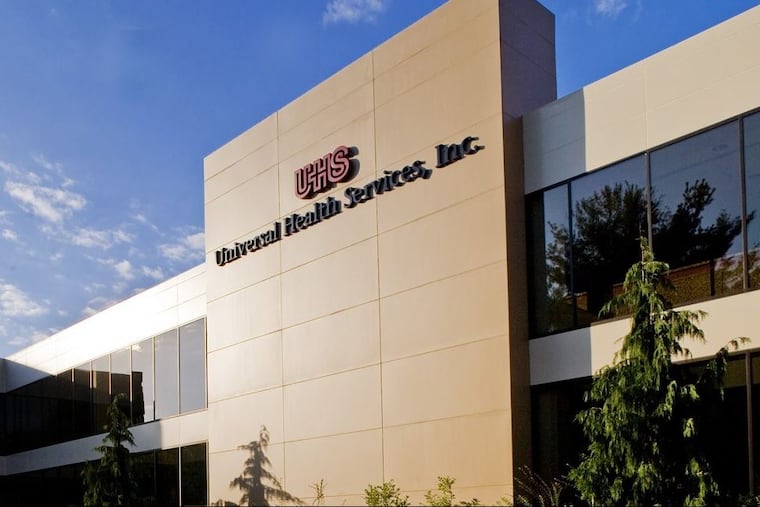Universal Health Services takes big write-down on addiction-treatment unit because the business has changed
The addictions-treatment business has moved away from traveling for care, and using out of network insurance payments, forcing the write-down of Foundations Recovery Network.

When Universal Health Services Inc. paid $350 million for addiction-treatment firm Foundations Recovery Network LLC in 2015, it seemed like a deal that was spot-on with societal trends. The addiction sector was booming.
But the Foundations model — involving direct-to-consumer marketing, travel for treatment, and out-of-network insurance payments — has not held up, leading King-of-Prussia-based UHS to write off $147 million. That is more than 40% of what it paid for Foundations, including $98 million in the quarter ended Sept. 30.
“There is much less out-of-network. There is much less travel for treatment. There is more and more control by the payers and less and less by the patients,” UHS chief financial office Steve Filton said Friday on a conference call with analysts about UHS’s third quarter earnings.
Two federal laws — the Mental Health Parity and Addiction Equity Act and the Affordable Care Act, which made addiction treatment an essential benefit — forced insurers to cover that care. But rates paid under contracts with insurers are typically lower than out-of-network rates.
On Friday, UHS’s stock closed down $6.77, or 4.7%, to $137.93. Of particular concern to analysts was a decline in the growth rate of patient volumes in the hundreds of behavioral-health facilities that UHS owns in the United States and England. UHS also has 26 acute-care hospitals.
UHS reported $97.2 million in net income on $2.8 billion in revenue in the quarter ending Sept. 30, compared with $171.7 million in net income on $2.6 billion in revenue in the same period of 2018.
In the Philadelphia region, UHS owns Brooke Glen Behavioral Hospital in Fort Washington, Foundations Behavioral Health in Doylestown, The Horsham Clinic in Ambler, and Keystone Center in Wallingford, as well as Fairmount Behavioral Health System and Friends Hospital, in Philadelphia.
Aside from the write-down, Foundations also represented a $3 million drag on cash earnings in the most recent quarter, Filton told analysts.
That’s not what Filton expected in 2015 from Foundations, which had four inpatient facilities in California, Georgia, and Tennessee comprising 322 beds, as well as eight outpatient centers, when UHS bought it.
“We view this as a very attractive platform” that could "generate business for our hospitals in other geographies,” Filton told investors in January 2016.
UHS founder Alan B. Miller defended the deal on Friday’s call: “For the first few years after the acquisition, we did very well in the business, but then the nature of the business changed. We are making adjustments.”
Separately this week, UHS announced another joint venture with a nonprofit system to build a behavioral health facility. The partnership, with HonorHealth, which has five hospitals in the Phoenix area, will build a freestanding 120-bed facility in suburban Scottsdale for $39 million.
Other such partnerships have been with Valley Children’s Health in Madera, Calif., and Lancaster General Health, part of the University of Pennsylvania Health System.
Because hospital operators are seeing more patients with behavioral health problems in their acute-care emergency departments, Filton said, “they remain extremely bullish about these businesses.”